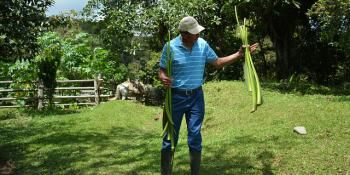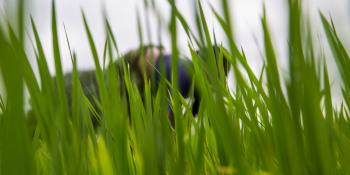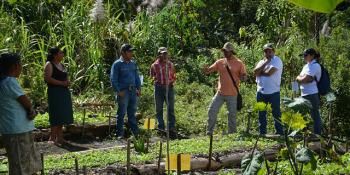You get further with a partner when turning research into practice
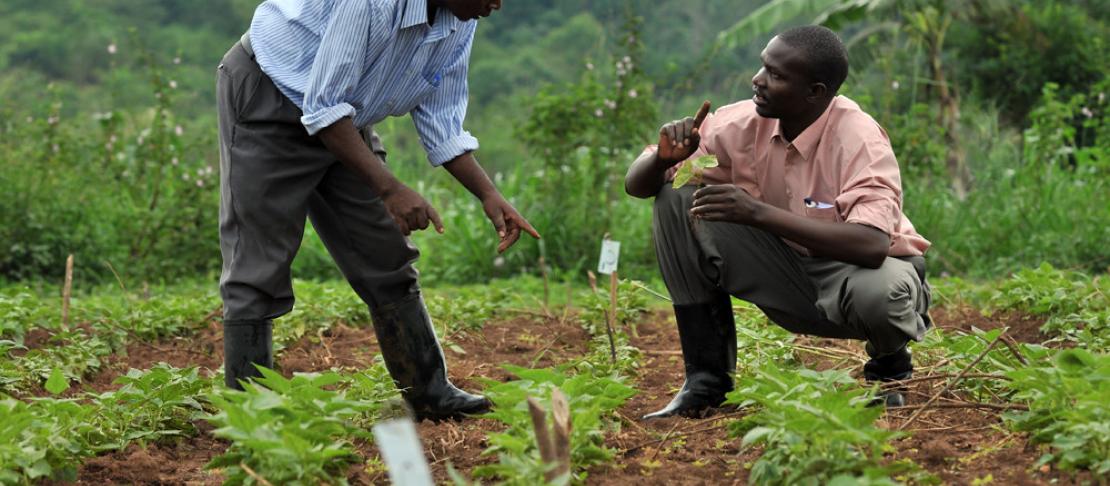
by Olive Thiong'o
Sustainable policy guidelines and community adaptation strategies need to be included when putting research into practice, to achieve value for money. This was the message by development experts at the (CARIAA) dialogue held in parallel to the COP18 climate negotiations.
The dialogue discussions were focused on the experiences, lessons and key issues to be considered, prior to the launch of the CARIAA CAD program. It’s envisioned that the program will be consortium-led and community-focused, and will attract private investment.
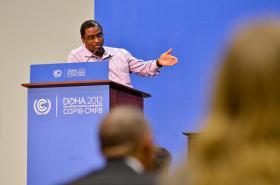
James Kinyangi of the East Africa CGIAR Research Program on Climate Change, Agriculture and Food Security (CCAFS) took part as an expert on the topic. He put emphasis on partnerships in making reforms. As is the case in CCAFS, multiple partnerships with farmers, the private sector, and the national or regional policymakers work better when it comes to implement the program in the region.
Another panel expert, Mohammed Adrabo brought in the angle to which policymakers take on issues: implications of inaction, or what investing in programs such as CARIAA can save.
Deliberations from these analyses indicate that solutions to bridging research to development already exist. However, with this being a season of transition – a lot of change happening and even more change yet to be implemented, collaborative action is necessary. An example of this transition is seen in what’s referred to as adaptation science, which is not a traditional hard science, but a science in the making.
In qualifying the notable strength of adaptation science, Saleemul Huq, also part of the panel, said, “It’s not based on academia, but rather co-created between planners, policymakers, and researchers, and requires a new kind of research function that includes working with practitioners and communities." He continued: "In addition, its knowledge base on adaptation is more from developing countries than it is from developed ones.”
This science, which does not take on a business-as-usual approach, should characteristically take on a socio-economic outlook, as exemplified in CCAFS Participatory Action Research (PAR) that is demand-driven, linking research with government and the community to implement policy and practices at the local and national levels.
CCAFS PAR activities work through the learning loops to build a knowledge base and share the lessons learned with policymakers and local communities, which leads to change on the ground and evidence for policy advocacy.
The discussion was summed up in a challenge to CARIAA and other development practitioners: “Now that research has been done and knowledge generated, researchers need to think of how they are now going to impact peoples’ livelihoods at grassroots levels,” said Alexander Alusa, Climate Change Advisor to the Prime Minister in Kenya.
View Dr. James Kinyangi discuss a new agriculture program
Read more about what we are doing in East Africa.
Olive Thiong'o is a Communications Officer at CCAFS East Africa program. Follow the latest developments from the UN climate talks in Doha on our blog, on twitter @cgiarclimate and #ALLForest
